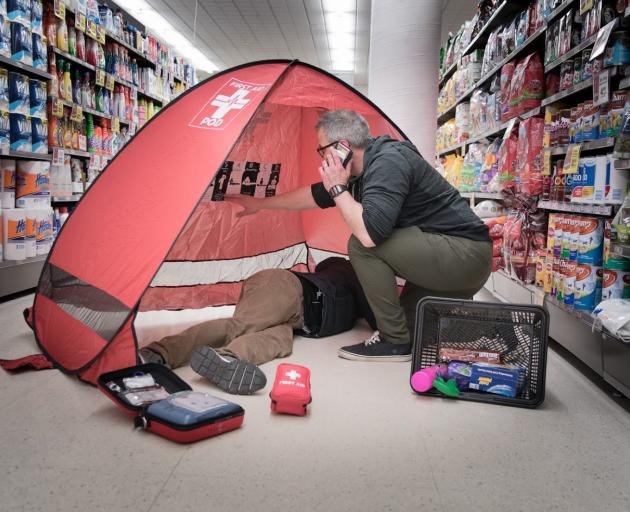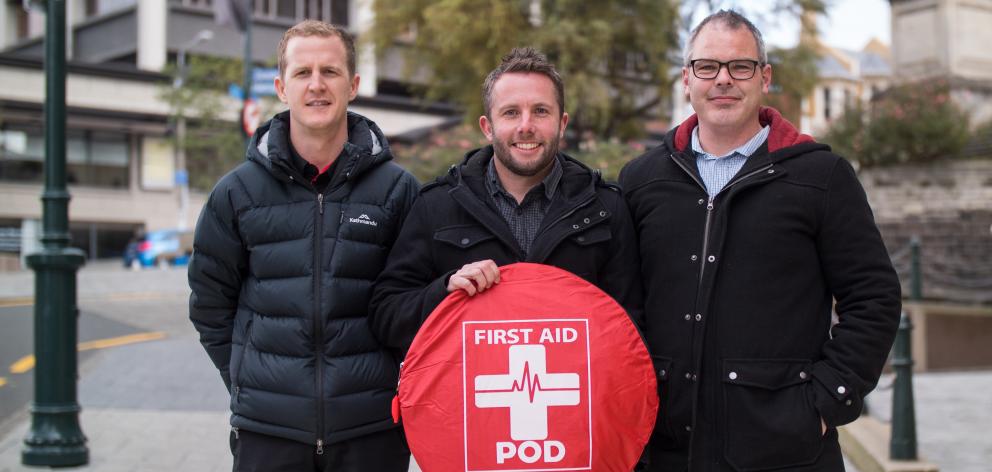
Centre City New World operations manager Tony Watts had dealt with ``numerous'' medical events and first aid situations.
But after searching the internet for a tool or product to provide privacy and shelter, he came up empty-handed.
He teamed up with fellow operations managers Braedan Trompetter and Craig Latimer to design and manufacture the First Aid Pod.
The instant, pop-up shelter is placed over a patient to provide guidance for first responders and emergency services, privacy from onlookers and shelter from the weather.
First aid guidelines are printed inside the pod and on the reverse of its carry bag, providing guidance for first responders.
The pod is floorless so it can be moved easily and can be used both inside and outside. It also includes a 57-piece first aid kit.
It was launched just over a year ago and, since then, it had been sold to supermarkets throughout New Zealand, construction companies, pools, gyms, councils, airports, schools, sports clubs and other retail stores. NZ Ski had also agreed to trial the pod on its skifields this winter.

Mr Trompetter said starting a business ``from scratch'' had involved a lot of learning but it was also a lot of fun.
The trio still worked at the supermarket, so it had been a matter of doing it before and after work and at lunchtimes.
The challenge they faced was the need to educate prospective customers because the product had not previously existed, he said.
The potential of the product was ``enormous'' as it was applicable in so many situations - ``malls, train stations, stadiums, events - you name it''.
It would also be useful at vehicle accidents.
``You see it so often, people just driving past and having a gander,'' he said.
Feedback had been positive. A woman arrived at the supermarket one day to give Mr Watts a hug - a family member had had an accident at a supermarket in Invercargill where the pod had been used, and she was grateful.
Enterprise Dunedin had advised the company and a mentor had been assigned so they could learn how to expand the company.












